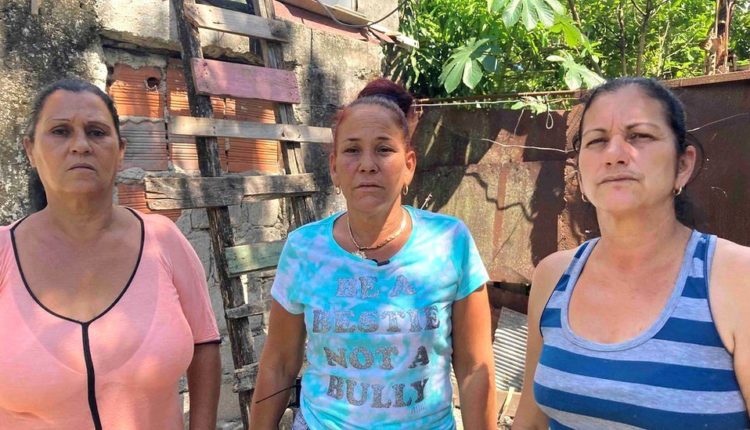When thousands of Cubans took to the streets a year ago, the only person to lose their life was killed in La Güinera, a poor and predominantly black neighbourhood on the outskirts of the capital, Havana.
Diubis Laurencio Tejeda, a young black man, was shot by police during the unprecedented anti-government uprising.
After riot police quashed the nationwide protests, around 100 of the 700 people to receive prison sentences also came from the same impoverished area. Many residents, particularly relatives of those who were convicted, believe the state made an example of La Güinera to deter future demonstrations.
“Here in La Güinera, there wasn’t any vandalism,” says Elizabeth León Martínez, showing mobile phone footage from outside her house which she says backs up her version of events – that the police stormed into the neighbourhood, arresting people at random.
“No-one destroyed patrol cars or broke up stores. Here, there was a response to the police who threw stones and fired shots. All those kids did was run,” she says.
Among the hundreds picked up that day were three of her children. At their subsequent trial, they received between six and eight years for sedition – inciting people to rebel against the state.
“Everything [in the trial] was so false. There were 22 kids being tried at the same time. It was like a show, a montage, like theatre. I’m still traumatised by what I saw there,” Elizabeth says. “Justice in Cuba doesn’t work.”
Living conditions in La Güinera are some of the most precarious in Havana. Many residents live in what is known in Cuba as casas de llega y pon – homes built from plastic sheeting, corrugated iron, breezeblocks, wood or whatever is at hand.
Elizabeth lives in one such place, her barefoot grandchildren playing amid scrap metal and rubbish. Already struggling, she must now survive with three fewer incomes to the household as well as looking after their children.
Furthermore, as prison food is near-inedible in Cuba, she must bring each one a food parcel every week to live on behind bars.
“Filling one bag is tough at the moment,” she says of the widespread food shortages and rising inflation, “filling three is almost impossible”.
Source: BBC


Comments are closed.